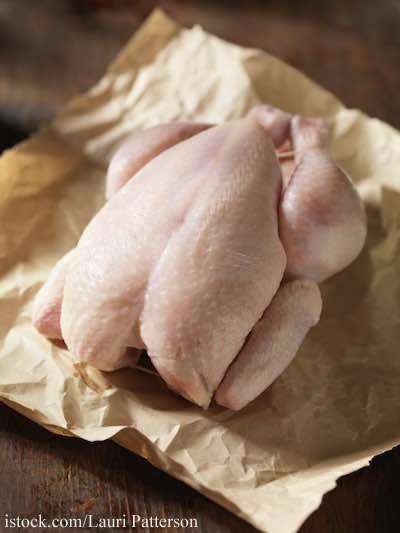A new study at UC-Davis has identified many risky practices of consumers in their homes. The study looked at the preparation of raw poultry. The two most common mistakes were cross contamination and insufficient cooking.
 Christine Bruhn, director of the Center for consumer research at the university, who authored the study said in a statement, “the most surprising aspect of these findings to me was the prevalence of undercooking. We are now in summer, the peak season for foodborne illness, and these results come at a time when more consumers can benefit from being aware of better food safety practices.”
Christine Bruhn, director of the Center for consumer research at the university, who authored the study said in a statement, “the most surprising aspect of these findings to me was the prevalence of undercooking. We are now in summer, the peak season for foodborne illness, and these results come at a time when more consumers can benefit from being aware of better food safety practices.”
Those good practices include always washing hands with soap and water before cooking and after handling raw meat, poultry and eggs, never rinsing poultry in the sink, and always using a food thermometer to check the final internal temperatures of foods.
Researchers looked at video footage of 120 participants preparing a chicken dish and salad in their home kitchens. (Two years ago, the same team looked at burger and salad preparation in home kitchens.) Eighty-five percent of participants said they served chicken in their homes weekly, and 84% said they were knowledgeable about food safety. Forty-eight percent said they had received formal food safety training.
Sixty-five precedent of participants didn’t wash their hands before starting working with the food, and 38% did not wash their hands after handling raw chicken. Just 10% washed their hands for 20 seconds, the recommended time, and one-third did not use soap. Almost half of the participants washed chicken in the sink before preparation, a practice that spreads bacteria over the kitchen and is not recommended.
When cooking the chicken, 40% undercooked it. Only 29% knew the correct USDA recommended final temperature of 165°F. Only 48% of participants even own a food thermometer. Sixty-nine percent “seldom” use it to check if the chicken is thoroughly cooked. Most determined doneness based on appearance, which is unreliable. And no one calibrated their thermometers to ensure accuracy.
Based on these findings, the California Department of Food and Agriculture, UC Davis, the California Poultry Federation, the Oregon Department of Agriculture, the Washington State Department of Agriculture, the Northwest Chicken Council, Partnership for Food Safety Education, and Foster Farms are starting an educational campaign to increase consumer knowledge about safe food preparation practices. The research was funded by Foster Farms.





It is ridiculous how people don’t follow the most basic practices that are “known requirements” of proper hand washing sufficient coking time and temperatures.